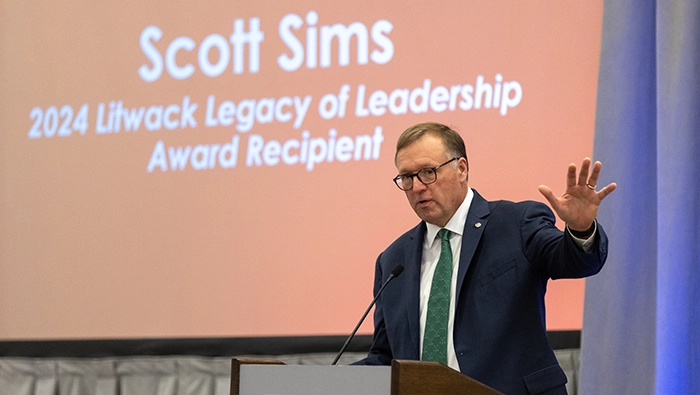See our list of honorees and get insights from a few leaders on how they achieved their success.
By Debra Des Vignes
Kiwanis International is proud to spotlight districts that have been recognized with Distinguished and Pinnacle status for 2022-23. Under criteria set by Kiwanis International Immediate Past President Bert West, these districts met specific milestones for membership growth, new clubs, service and education.
Common themes among the honorees were the importance of teamwork, strategic planning and the positive examples of district officers.
Ortiz de Testa, 2022-23 chair of the Panama Provisional District, attributed the district’s success to a well-prepared team and a thorough analysis of district needs — factors that informed their strategic action plan.
Salvatore Chianello, immediate past governor of Italy-San Marino, highlights the opening of 17 new Key Clubs and the enthusiastic involvement of young members as key factors in his district’s success.
Other leaders note the significance of impactful projects and effective growth strategies.
“Our district opened three new clubs and focused on increasing corporate sponsorships,” says Dawn Ignatius, immediate past governor of the Rocky Mountain District. “These two efforts helped us grow and made us financially sound. We also put forth our effort on the development of a new level of membership, ‘friends of Kiwanis,’ and division realignment.”
Dwight Watt, past governor of the Kentucky-Tennessee District, emphasizes the consistency that led to success.
“The district worked hard all year on increasing service hours to our communities and district, and also creating the first new clubs since the pandemic,” Watt says.
Kiwanis International thanks all the district leaders and their fellow Kiwanians whose collaboration, innovation and commitment enhanced the lives of children and communities. The efforts of members in Distinguished and Pinnacle districts continue to drive forward the organization’s mission.
2022-23 Pinnacle and Distinguished districts
Congratulations to these district leaders (in alphabetical order by district):
- Mary Hoerlein, Alabama District, Pinnacle and Distinguished.
- Franz Domino, Austria District, Pinnacle and Distinguished.
- Miguel Stevens, Belgium-Luxembourg District, Pinnacle and Distinguished.
- Jennifer Wolff, Capital District, Distinguished.
- Anthony Haile, Eastern Canada and the Caribbean District, Distinguished.
- Darryl Gumz, Georgia District, Distinguished.
- Salvatore Chianello, Italy-San Marino District, Pinnacle and Distinguished.
- Dwight Watt, Kentucky-Tennessee District, Distinguished.
- R. Bruce Hammatt, Louisiana-Mississippi-West Tennessee District, Pinnacle and Distinguished.
- John Falconer, New England & Bermuda District, Distinguished.
- Kirk Popiolek, New Jersey District, Distinguished.
- Joel Harris, New York, Distinguished
- Dawn Ignatius, Rocky Mountain District, Distinguished.
- Juan Domino, Philippine Luzon, Distinguished.
- Carmen Ortiz de Testa, Panama Provisional District, Pinnacle and Distinguished.
- Evangeline Chan Chu, Southern Philippine District, Distinguished.
- Roland Franzi, Switzerland-Liechtenstein District, Distinguished.
- Cheng-Yi Hsiao, Taiwan District, Pinnacle and Distinguished.



